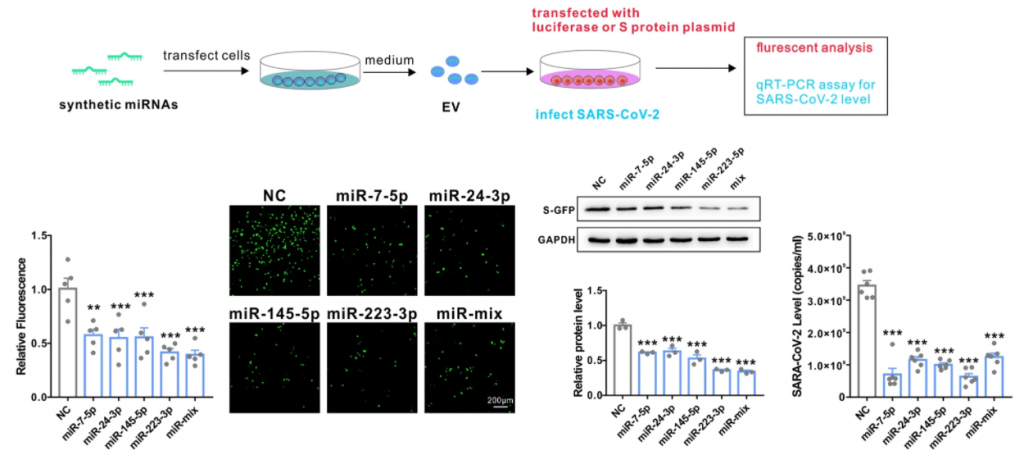A group from School of Life Sciences, Nanjing University, Nanjing, China, etc. has reported four miRNAs (miR-7-5p, miR-24-3p, miR-145-5p and miR-223-3p) that are remarkably decreased in the elderly and diabetic individuals can inhibit SARS-CoV-2 replication.
https://www.nature.com/articles/s41392-021-00716-y
To comprehensively investigate the differences in circulating miRNA expression patterns in the serum between young and elderly people, age-related non-coding RNA expression profiles obtained by high-throughput sequencing from the NCBI Gene Expression Omnibus database were downloaded. A total of 13 samples (3 young, age <30 and 10 old, age >60) were analyzed, and differentially expressed miRNAs were screened and identified.
Quite interestingly, it was found that four miRNAs (miR-7-5p, miR-24-3p, miR-145-5p and miR-223-3p) through high-throughput sequencing and quantitative real-time PCR analysis, that are remarkably decreased in the elderly and diabetic groups.
Then, it was demonstrated that these miRNAs, either in the exosome or in the free form, can directly inhibit S protein expression and SARS-CoV-2 replication. A figure below shows the case of exosome.

